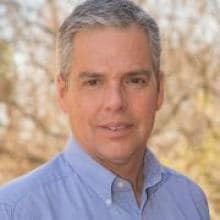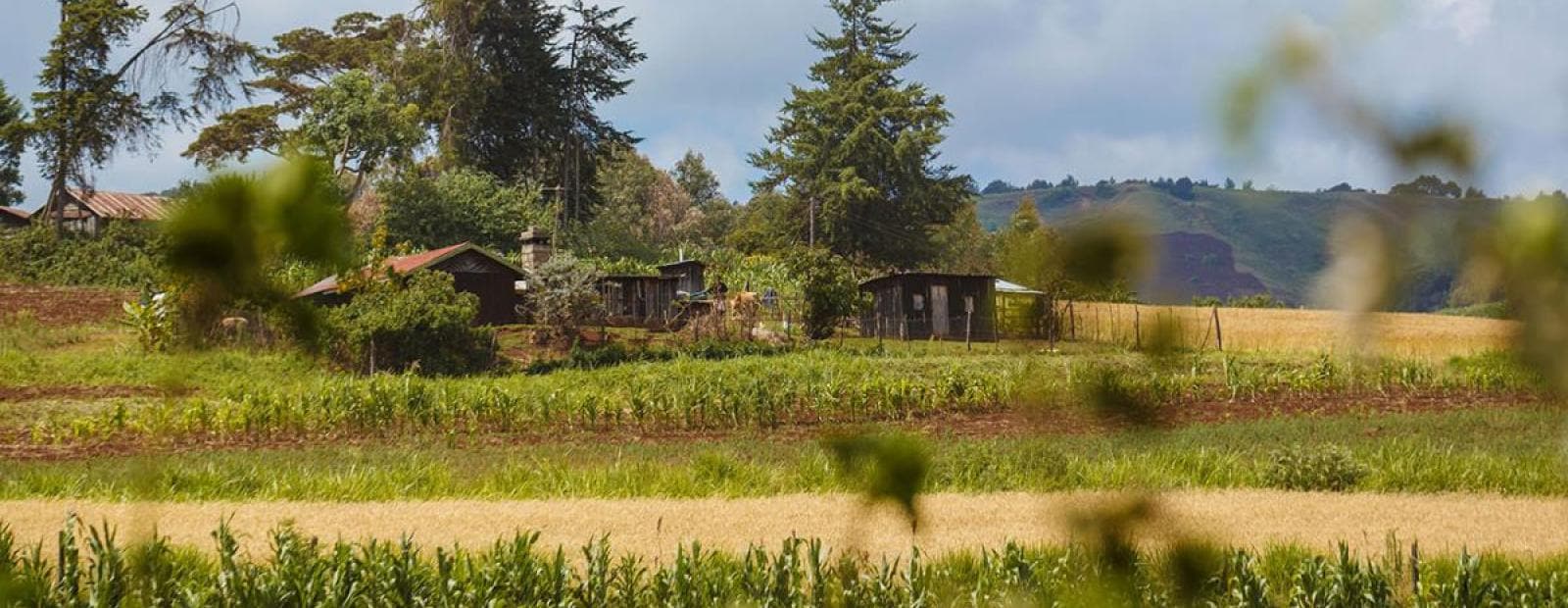One Seed at a Time
Smallholder farmers around the world face diverse challenges that require holistic solutions. As a group of more than 500 million people residing across Asia, Africa, and South America, these farmers provide 80 percent of the food supply for their communities. In a time of global health concerns, maintaining efficient, safe food supply chains is critical. Now, more than ever, our goal of supporting smallholder farmers is of the utmost importance.
Bayer is committed to supporting 100 million smallholder farmers in developing countries by 2030. We can do this through collaborative partnerships and innovative solutions that provide agricultural know-how, access to markets, financing options and input choices to address their most challenging issues.
In a candid interview, Mark Edge, Head of Partnerships for Developing Countries, answers questions about how the innovations in plant breeding technologies and strategic collaborations are having an impact on smallholder farmers in Sub-Saharan Africa and shares how this technology can strengthen the food supply for the future.
Q: Can you tell us a little bit about yourself, your role and how you came into this position?
A: I grew up on a farm in Iowa and my family still farms, so I’ve always had a connection with agriculture. I grew up passionate about ag and how technology can make a difference for farmers.
Over the past 20 years, I’ve had the opportunity to help introduce new technologies to farmers. Most recently, I worked with the biotech drought-tolerant corn that was introduced in the U.S. The technology was also licensed to a project that I work on called the Water Efficient Maize for Africa (WEMA). This project develops drought-tolerant and insect-resistant maize (corn) for smallholder farmers in Sub-Sahara Africa.
Through the WEMA project, I’ve had the opportunity to work with people from the public sector in Africa. It’s very motivating – they are really passionate about trying to make a difference for their fellow countrymen.;
Q: The wellbeing of smallholder farmers is crucial to their communities. How can support from companies like Bayer help strengthen these communities?
A: In smallholder communities, agriculture is central to all activities. Smallholders are providing food security is one thing, but their work is also an economic driver. Almost everything that goes on in these communities from an economic standpoint revolves around being able to develop a food system that's going to create food security and improve the health of the people who reside there. So, in addition to being a way of life, smallholder farming is also a very important piece of creating prosperity for the community. It’s not really possible, or necessary, to separate agriculture and food production in these smallholder communities from overall wellbeing and economic productivity.
Bayer and other companies have a role to play in providing the tools and knowledge to smallholders that help them be successful. One of the best resources we have is improved seed technology. Regardless of where you are in the world, when a seed is planted it delivers its genetic potential. If you’re a large-scale farmer or smallholder farmer who plants an insect-resistant maize variety seed, the plants have the same protection whether you're on one acre or 1,000 acres. The improved seed makes it easy for the farmer to use this technology.
Q: What are some of the specific challenges around sustainability that smallholders tend to have?
A: One part of the challenge is that farmers are trying to produce as much as they can with the smallest footprint possible. When they are harvesting only one and a half tons per hectare instead of eight tons per hectare, more land is needed to be able to produce the required amount. Maintaining soil health poses another challenge. We work to share knowledge about agronomic practices, such as crop rotation or reducing tillage, to build organic matter in soils.
Smallholder farmers often depend on a single cash crop. The challenge is encouraging these farmers to consider a holistic approach, to diversify and not rely on one crop or one technology to solve their challenges. In farming, there are no silver bullets. There’s an intersection of complex factors, and incorporating sustainability efforts can mitigate some of these issues.
We recognize that there is no one size fits all solution for smallholder farmers around the world. Agronomic knowledge and practices have to be tailored locally. An important way companies like Bayer can contribute is the ability to transfer resources to communities and conduct applied research for local conditions.

Q: You've had considerable experience working with and interacting with smallholders, and you were just visiting smallholder farmers in Africa. Is there one example that stands out in your mind about how these partnerships have affected the communities and livelihoods of those you work with?
A: I could share many, but just in February I was in South Africa with the WEMA partnership team to evaluate our research projects and the progress that has been made. We have been able to introduce the Bt maize hybrids to the community, which provides insect resistance.
While on a bus tour heading to see a few of our research sites, we were able to stop and meet a few of the farmers who had planted these seeds. Several women farmers from the community were there and shared with us their excitement for how their maize crop from these seeds have produced on their farms.
This area in South Africa suffers from fall armyworm infestations and without good protection, the pests will eat entire plants. They took us to their field to show us what they had planted, and the juxtaposition was stark between the Bt maize hybrid field and conventional seed field next to it. The field planted with the Bt maize hybrid that provided protection against the fall armyworm was growing, green and full. Just 20 meters away, the conventional maize without the Bt protection was decimated by the fall armyworms. When you think about how important that crop is to the well-being of a farmer’s family and even their community, or how devastating it can be if they don’t have access to modern tools, it really motivates you to want to make sure they have access to the tools they need to succeed.
Even though I didn’t speak the same language as these farmers, their passion and excitement were unmistakable. Their mood was infectious for the whole group. It made me incredibly proud to experience the difference of this innovative technology.
Q: Being able to experience that success story sounds amazing. We hope that can continue for farmers across the region. As we’ve discussed, smallholder farmers are responsible for providing staple foods for themselves and their communities. With more than 300 million people in Africa that rely on maize as a staple crop, there are bound to be challenges. How are we helping smallholder farmers combat challenges around growing these staple crops?
A: First and foremost, they have many of the same challenges that every farmer faces around the world. They are facing challenges like changing climates, marketing challenges and difficulty with financing their operations.
Weather is the biggest challenge facing smallholders in Africa. The weather patterns are less and less predictable and they aren’t seeing the amount of rain needed to grow their crops. They are struggling to determine when is the right time to plant, which creates a high level of anxiety. The increased frequency and severity of droughts is becoming more prevalent and more concerning.
There are no simple solutions, but we are able to focus on both mitigation and adaptation. The WEMA project is working to adapt seeds so they are more resilient and require less water to be successful. Expanding access to digital tools to smallholder farmers is one key way to mitigate the increased variability and help bolster confidence in smallholder farmers in predicting planting timelines.
Q: You talk a lot about the partnerships and collaborations being key to success. Why is collaboration so important within smallholder communities?
A: Collaboration is important because the challenges smallholders face are complex and there isn't one solution. At Bayer, we know there is no one quick fix or one company that can provide all the pieces to solve the puzzle. That’s why partnerships like WEMA serve as a great example of collaboration.
At times, we all tend to focus on our favorite simple solution we think is best – I call it the” if only they would adopt my idea” mentality. However, it rarely works that way, so instead, we need to use the opportunity to help these communities grow through the empowerment of the local people to take ownership of decisions that impact their communities to chart their own path forward. We are there to help support local decision-makers and farmers access all the tools in the toolbox to learn and discover the approaches they believe are best. Collaboration isn’t just between the company and other organizations working together to provide support – collaboration involves and empowers local people and enables them to make decisions to drive progress for their communities. Now, more than ever, we are committed to supporting smallholder farmers to navigate the challenges they face.











